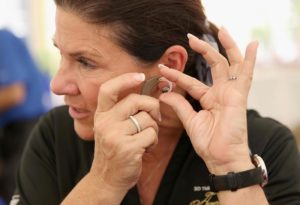 We all know that it is important to have a diet rich with iron. But what role does iron play in our health, and how is it related to hearing loss? Iron is an important component of hemoglobin, the substance in red blood cells that carries oxygen from your lungs to transport it throughout your body. A lack of red blood cells is called iron deficiency anemia. Without healthy red blood cells, your body can’t get enough oxygen.
We all know that it is important to have a diet rich with iron. But what role does iron play in our health, and how is it related to hearing loss? Iron is an important component of hemoglobin, the substance in red blood cells that carries oxygen from your lungs to transport it throughout your body. A lack of red blood cells is called iron deficiency anemia. Without healthy red blood cells, your body can’t get enough oxygen.
In a recent study of 305,339 adults, those that had iron deficiency anemia, were twice as likely to have a hearing impairment than those with normal levels of iron. Those with low levels were more likely to develop sensorineural hearing loss. This is the most common type of hearing loss. Sensorineural hearing loss is a permanent hearing loss that occurs when there is damage to either the tiny hair-like cells of the inner ear, or the auditory nerve itself. This damage prevents or weakens the transfer of nerve signals to the brain. These blocked nerve signals carry information about the intensity and clarity of sounds.
Some of the symptoms of sensorineural hearing loss:
- Noises may seem too loud or too quiet
- Difficulty following a conversation when two or more people are speaking at the same time
- Problems listening in noisy environments (e.g. train stations, construction sites, convention centers, sports arenas, etc.)
- Difficulty hearing women’s or children’s voices
- Certain speech sounds are difficult to hear during conversations (e.g. the “s” or “th” sound)
- Speech of others may seem slurred or mumbled
- A consistent ringing or buzzing in the ears (tinnitus)
- A feeling of being off-balance or dizzy
For most individuals, eating a balanced diet provides the body with an adequate supply of iron. Foods rich in iron include red meat, pork, poultry, seafood, beans, peas, dark leafy vegetables, dried fruit, and iron fortified cereals and pasta.
In the inner ear, oxygen is necessary for the health of sensory hair cells involved in translating sound into electrical impulses. A lack of oxygen can damage these sensory hair cells or cause them to die. This will affect the way they are able to perform the translation and transmit the impulses to the brain for interpretation.
It’s important to get checked out by your physician and go over your health history with them if you think you have low levels of iron. More research needs to be done between the link of low iron and hearing loss. If you notice you’re not hearing as well, it is important to have your hearing checked by an audiologist.

